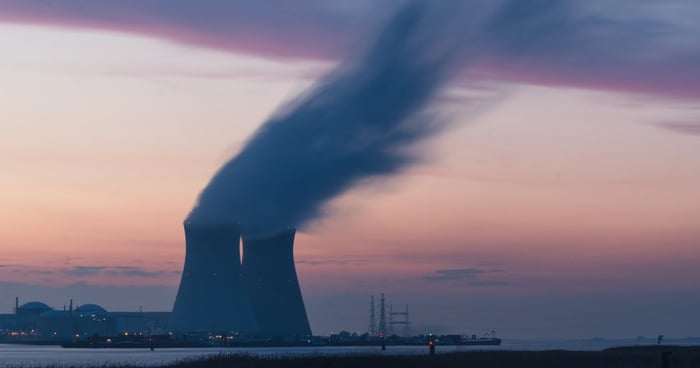

© Frédéric Paulussen
PRI STATEMENT: EU SUSTAINABLE TAXONOMY CLIMATE DELEGATED ACT COVERING GAS AND NUCLEAR ENERGY
9 February 2022
The European Commission has adopted the EU Sustainable Taxonomy complementary climate delegated act (complementary climate DA). The complementary climate DA, which is now subject to a 4-to-6 month scrutiny period by the European Council and European Parliament, includes technical screening criteria (TSC) covering gas-fired power/cogeneration/district heating and cooling (henceforth ‘gas’) [1] and the construction/operation/life extension of nuclear power plants (henceforth ‘nuclear energy’) [2]. If adopted by the Parliament, the EU Sustainable Taxonomy can no longer be considered the gold standard for a sustainability performance benchmark. This will push an additional burden onto investors who will need to carefully review the disclosures to ensure that their taxonomy-aligned investments reflect criteria that are science-based.Economic activities can only be labelled sustainable under the EU Sustainable Taxonomy if they substantially contribute to one of the six environmental goals included in the Taxonomy Regulation, while not doing significant harm to any of the other five environmental goals. The TSC for gas and nuclear energy marks a deviation from an environmental science-based assessment of economic activity and performance aligned with the Paris agreement in favour of political and energy market considerations. The suggested approach also moves the instrument away from its initial objective of defining sustainable economic activities on a technology neutral basis, which for the power sector is set within the 100g CO2e/kWh performance threshold.[3]In addition to deviating from the initial approach of the Taxonomy Regulation, the disclosure requirement proposed in the complementary climate DA would create additional implementation challenges for investors. The disclosure rules will allow investors to distinguish and identify to some extent their exposure to gas and nuclear energy, but also contain major weaknesses:- Exposures to taxonomy-aligned gas and nuclear activities can be reported using all three KPIs (i.e. turnover/Capex/Opex). However, as a backward-looking metric, turnover should not be recognised as taxonomy-aligned before the activity has reached sustainable performance levels; and Capex can only be recognised if it ensures that an activity reaches sustainable performance levels;
- It remains uncertain how reporting requirements will apply to financial products (i.e., article 5 and 6 of the Taxonomy Regulation), and whether they will be coherent with the currently proposed requirements for corporate and financial entities (i.e. article 8 of the Taxonomy Regulation).[4]
- Extending the EU Sustainable Taxonomy as per the provisions in article 26(1)f of the EU Taxonomy Regulation. As indicated by a draft report of the Platform on Sustainable Finance, the potential extension of the EU Taxonomy would allow the recognition of intermediate economic activities and transition pathways, such as gas-fired power that operates below the ‘significant harm’ threshold of 270g CO2/kWh.
- Developing a legislative proposal on transition sectors under the decarbonisation financing initiative. This legislation should be separate from the EU Sustainable Taxonomy to ensure it does not undermine the EU’s sustainability objectives or lead to the lock-in of carbon intensive activities – as suggested in the European Commission’s recent sustainable finance strategy.
Published by
 investESG
investESG
 investESG
investESG

